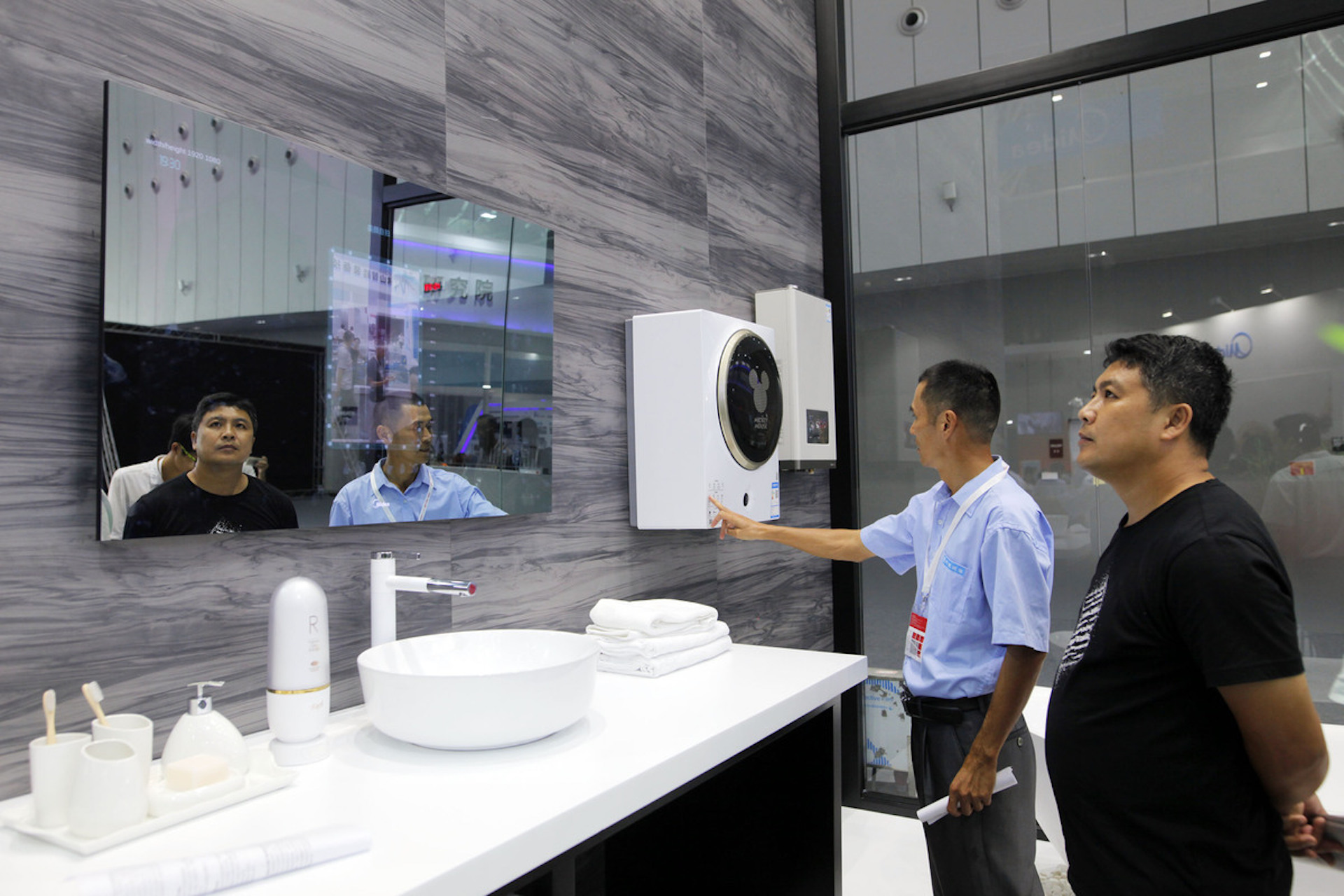The age of smart homes and smart products has started in China’s cities
Homes in Chinese cities are getting smarter, with high-tech upgrades ranging from vacuum robots to explosion-proof microwaves.

In addition to smart phones and watches, a wide range of smart home products and household equipment has entered daily life in China’s cities, including smart door locks and doorbells, kitchen appliances, cat litter boxes, and sweeping and vacuum smart robots.
- Smart products are usually connected to the internet and cloud services, and able to operate with a degree of autonomy.
China’s smart home market expanded to 580 billion yuan ($91.08 billion) from from 260 billion yuan ($40.96 billion) from 2016 to 2021, according to data from the China Business Industry Research Institute 中商产业研究院.
- Sales of smart devices increased by 90.5% year-on-year; sales of smart wearables such as watches and smart glasses increased by 36.3% and 26.8% year-on-year, respectively, according to Ministry of Commerce statistics for 2021.
In April 2021, 16 government departments, including the Ministry of Housing and Urban-Rural Development and the Ministry of Public Security, jointly issued guidelines on accelerating the development of digital homes, which require that by the end of 2022, policies, systems, and standards for digital homes should be in place. Hence a relatively niche industry has expanded rapidly as companies follow government signals and consumer awareness has grown.
In 2021, the number of all-inclusive household smart industry brands on the Tmall platform more than doubled. Several major Chinese technology brands have entered the smart home and smart products industry:
- Mijia 米家, Xiaomi’s 小米 smart home brand, includes smart home furnishing products and a variety of explosion-proof products.
- Huawei‘s 华为 smart home brand Zhixuan 智选 was launched in 2018. In 2021, Zhixuan launched a smart dictionary pen with smart edutech company Wangi Youdao 网易有道.
- Orvibo’s 欧瑞博 HOME AI 3.0 smart home operating system integrates an interactive AI voice assistant and cloud computing in a smart home experience.
- Kaadaas 凯迪仕 provides smart locks integrating apps and cloud services.
The takeaway: Smart homes and smart devices are now entering a critical phase: They are increasingly enhancing the quality of life for many of their users, and younger urban consumers are eager to try out new products.
The industry is still in its infancy, however. According to the China Smart Home Industry Alliance 智能家居创业营, in 2020, there were 300,000 to 500,000 smart homes in China, accounting for only 1% of newly developed real estate.






